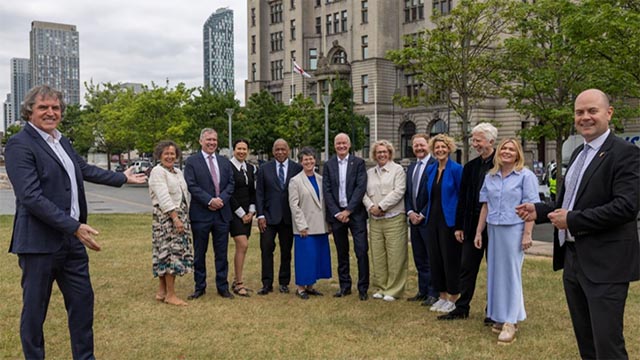The developer behind an eco-town in Warwickshire has denied claims it would need a public sector grant of £373m to be built. St Modwen spoke out after an alliance of six local authorities opposing the new town of Middle Quinton claimed the scheme was unviable without public sector funding. The councils commissioned a report by consultancy CB Richard Ellis which they say concludes that the scheme would be unable to fund requirements such as public transport, highways infrastructure and new schools. Councillor Charles Gillams, chair of the Eco-Town Joint Working Group, said: “The independent assessment confirms our long-held doubts about the viability of an eco-town in this location. It would appear that the development could not proceed without massive public subsidy. “Such public expenditure would be better directed to sustainable urban locations where needs can be matched with opportunities and existing infrastructure can be utilised more effectively.” However, John Dodds, St Modwen’s Midlands regional director, said the finding was “in total contrast” to the developer’s own figures. He said: “Over the 15- to 20-year length of the project, Middle Quinton would be commercially viable and financially sound. “We not only refute the deficit figure of £373m but reiterate what we have always said, that the project is entirely capable of funding the infrastructure projects and commitments already identified for schools, transport services and highway infrastructure.” Dodds added that the government’s own assessment of the viability of eco-towns, compiled by PricewaterhouseCoopers and due to be published this year, would be the “true test” of St Modwen’s plans. “If Middle Quinton can pass that level of scrutiny successfully, and we are hopeful that it will, it will be well on the way to establishing itself as a leading candidate for an eco-town site when the government comes to select its final shortlist of locations.”
The developer behind an eco-town in Warwickshire has denied claims it would need a public sector grant of £373m to be built.
St Modwen spoke out after an alliance of six local authorities opposing the new town of Middle Quinton claimed the scheme was unviable without public sector funding.
The councils commissioned a report by consultancy CB Richard Ellis which they say concludes that the scheme would be unable to fund requirements such as public transport, highways infrastructure and new schools.
Councillor Charles Gillams, chair of the Eco-Town Joint Working Group, said: “The independent assessment confirms our long-held doubts about the viability of an eco-town in this location. It would appear that the development could not proceed without massive public subsidy.
“Such public expenditure would be better directed to sustainable urban locations where needs can be matched with opportunities and existing infrastructure can be utilised more effectively.”
However, John Dodds, St Modwen’s Midlands regional director, said the finding was “in total contrast” to the developer’s own figures.
He said: “Over the 15- to 20-year length of the project, Middle Quinton would be commercially viable and financially sound.
“We not only refute the deficit figure of £373m but reiterate what we have always said, that the project is entirely capable of funding the infrastructure projects and commitments already identified for schools, transport services and highway infrastructure.”
Dodds added that the government’s own assessment of the viability of eco-towns, compiled by PricewaterhouseCoopers and due to be published this year, would be the “true test” of St Modwen’s plans.
“If Middle Quinton can pass that level of scrutiny successfully, and we are hopeful that it will, it will be well on the way to establishing itself as a leading candidate for an eco-town site when the government comes to select its final shortlist of locations.”










